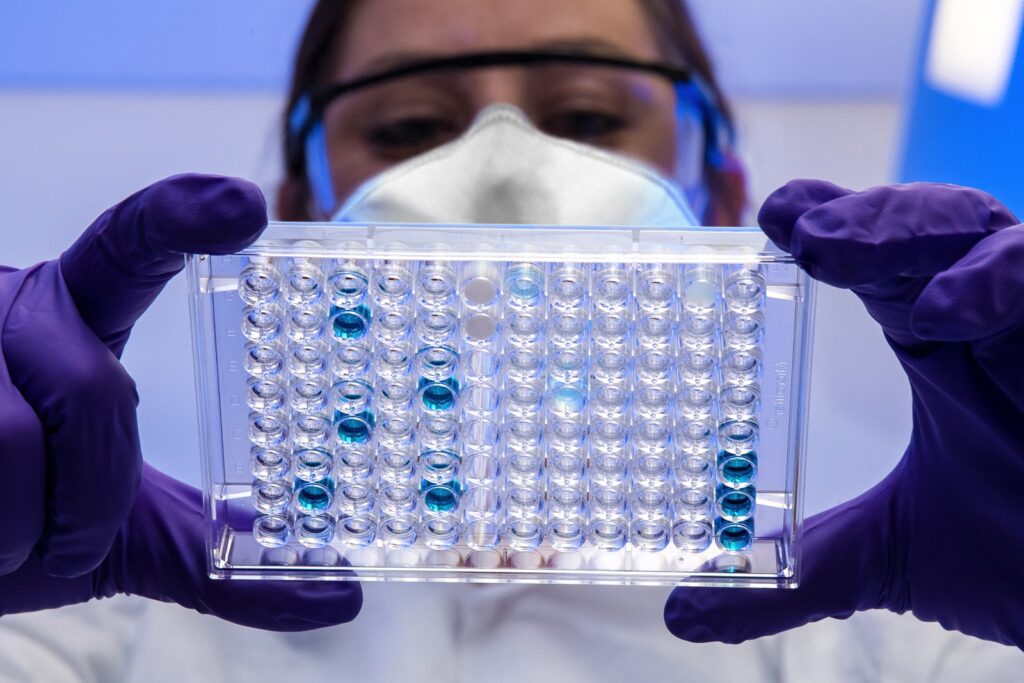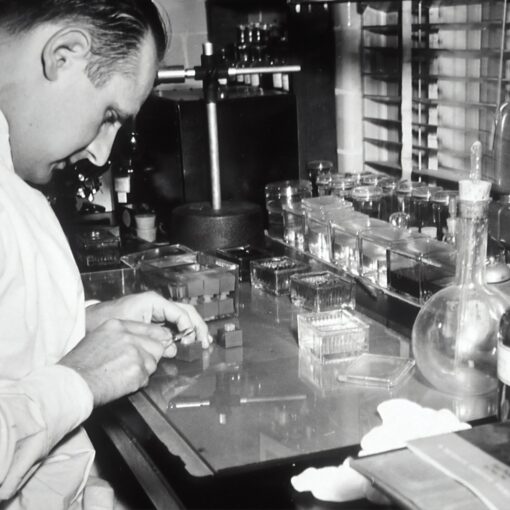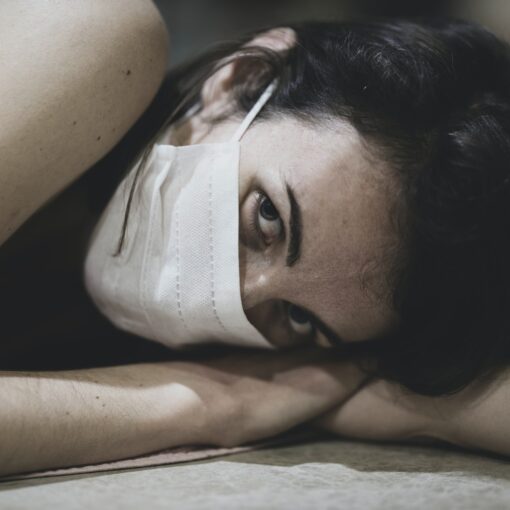Page Menu
The respiratory syncytial virus (RSV) is a highly contagious virus that can cause severe respiratory illness in children and adults. RSV is most commonly spread through the air, but it can also be spread through contact with saliva, mucus, or other respiratory secretions. RSV can cause a range of symptoms, including fever, cough, and shortness of breath.
Key Concepts and Top Takeaways
– Recognize symptoms: Look for coughing, wheezing, and difficulty breathing in infants.
– Monitor fever: Check for a high fever that may accompany respiratory distress.
– Keep hydrated: Ensure the child drinks plenty of fluids to prevent dehydration.
– Use humidifiers: Add moisture to the air to ease breathing difficulties at home.
– Practice good hygiene: Wash hands frequently to reduce the spread of RSV.
– Limit exposure: Avoid close contact with sick individuals, especially during outbreaks.
– Seek medical attention: Contact a doctor if breathing becomes rapid or labored.
– Follow treatment plans: Adhere to prescribed medications and therapies as directed.
– Educate caregivers: Inform family and babysitters about RSV signs and care methods.
– Schedule regular check-ups: Monitor lung health in children with a history of RSV infections.
Please Note: This post may contain affiliate links. If you click one of them, we may receive a commission at no extra cost to you. As an Amazon Associate, I earn from qualifying purchases.

Some people are at higher risk for developing RSV complications, such as bronchitis or pneumonia. There are several ways to reduce your risk of RSV complications, including staying healthy overall and getting vaccinated against RSV.
Respiratory syncytial virus (RSV) is a respiratory illness that can cause severe bronchitis, wheezing, and pneumonia in children and adults. It is highly contagious and can be spread through coughing and sneezing. RSV is most commonly spread through contact with respiratory secretions, such as saliva or mucus. People at high risk for RSV infection include infants, young children, pregnant women, and people with pre-existing lung conditions.
RSV infection can lead to pneumonia, which can be fatal in some cases. RSV is highly contagious and can be spread through coughing and sneezing. The best way to prevent RSV infection is to get vaccinated against the virus.
Symptoms of Respiratory Syncytial Virus
Symptoms of RSV can appear anywhere from a few days to several weeks after you become infected. Symptoms may include fever, coughing, shortness of breath, chest tightness, and wheezing. RSV is highly contagious and can be spread through contact with respiratory secretions, such as saliva or mucus. If you think you may have RSV, see your doctor for a diagnosis. Treatment typically involves antibiotics to fight the virus.
Symptoms of respiratory syncytial virus (RSV) can range from mild to severe and can often be mistaken for other lung conditions. Here are some key symptoms to look out for:
1. Chest pain or discomfort, especially when breathing in deeply or coughing
2. A high fever, which may reach over 104 degrees Fahrenheit
3. Shortness of breath, especially during exercise or when lying down
Fever is a common symptom of respiratory syncytial virus (RSV). RSV is a highly contagious virus that can cause severe respiratory illness in children and adults. In most cases, fever is not a sign of serious disease. However, if fever signals the presence of RSV, it may be a sign that the person has contracted the virus and should seek medical attention.
Coughing is a common symptom of respiratory syncytial virus (RSV). RSV is a respiratory infection that can cause severe throat and lung infections in both children and adults. Coughing is one of the most common symptoms of RSV, and it occurs in about 50% of people who get the virus.
People with RSV may have a high fever, cough, and shortness of breath. The coughing may be so severe that it causes blood to flow from the person's mouth or nose. In addition, people with RSV often have chest pain and rapid breathing.
RSV can be serious if it is not treated quickly. People with RSV should stay home from school or work until they are no longer feeling sick, and their fever has gone down.
Shortness of breath is a common symptom of respiratory syncytial virus (RSV) and is the most frequent reason for pediatric bronchiolitis hospitalizations. RSV can cause severe respiratory illness in young children, with an estimated incidence of 1–2 per 1000 live births. In adults, RSV symptoms can range from mild to severe, with an estimated incidence of 10–15 per 100,000 population. RSV is highly contagious and can be spread through coughing and sneezing. The best way to prevent RSV exposure is by avoiding close contact with people who are sick and by keeping your child’s home clean and well-ventilated.
Chest tightness is a common symptom of respiratory syncytial virus (RSV). RSV can cause severe chest pain, coughing, and difficulty breathing. Chest tightness may be a sign that you have RSV. If you experience chest tightness, make an appointment with your doctor.
Wheezing is another common symptom of respiratory syncytial virus (RSV). RSV can cause severe wheezing and difficulty breathing. Wheezing may be caused by the viral attacks on the lungs, or by bronchospasm, which is a response to the infection. There are several ways to prevent RSV wheezing. People at risk for RSV should avoid close contact with people who are sick and should take precautions to prevent exposure to RSV. If you have wheezing symptoms, see your doctor.
Causes of Respiratory Syncytial Virus
Respiratory syncytial virus (RSV) is a highly contagious respiratory illness caused by the RSV-1 or RSV-2 viruses. RSV is most commonly spread through the air, but can also be spread through contact with saliva, blood, feces, or mucus. Symptoms of RSV include fever, cough, and difficulty breathing. In severe cases, RSV can lead to pneumonia. There is no specific treatment for RSV, but sufferers can generally recover without any serious consequences if they receive prompt medical attention.
Respiratory syncytial virus (RSV) is a highly contagious virus that can cause severe respiratory illness in young children and adults. RSV is most commonly spread through coughing and sneezing, but it can also be spread through contact with droplets from an infected person’s mouth or nose.
RSV can cause severe bronchiolitis, which can lead to pneumonia.
The best way to prevent RSV infection is by avoiding close contact with people who are sick and by washing your hands often.
If you get sick with RSV, make sure to see your doctor for treatment. There is no specific cure for RSV infection, but treatment includes antibiotics and oxygen therapy.
RSV is most commonly spread through direct contact with respiratory secretions, such as saliva, mucus, or air droplets from an infected person.
RSV can also be spread through contact with surfaces or objects contaminated with the virus. The respiratory syncytial virus (RSV) is a common virus that can cause severe respiratory illness in children and adults. RSV is spread through contact with surfaces or objects contaminated with the virus. It can also be spread through contact with other people who are infected with RSV. In rare cases, RSV can be spread through exposure to saliva or mucus from an infected person.
The best way to prevent RSV infection is by avoiding close contact with people who are sick and by washing your hands frequently.
If you do get sick with RSV, make sure to get plenty of rest and drink plenty of fluids to help flush the virus out of your system.
Risk Factors for Respiratory Syncytial Virus
There are many risk factors that can lead to respiratory syncytial virus (RSV) infection. Respiratory syncytial virus is a respiratory illness caused by a member of the family Paramyxoviridae. The virus is spread through contact with respiratory secretions, such as saliva, mucus, or blood from an infected person. RSV can be deadly in young children and elderly people, who are more likely to experience severe symptoms.
Respiratory syncytial virus (RSV) is a highly contagious respiratory illness that can cause severe pneumonia in young children and adults. RSV is spread through the air, usually through coughing and sneezing. The virus is most often contracted during the winter months, when it is more likely to occur in close proximity to people who are infected.
Risk factors for RSV include: being born before 1957; having a weakened immune system; having asthma or other lung diseases; living in a residence with a pet that has been exposed to RSV; and being elderly or immunocompromised. Prevention of RSV involves avoiding close contact with people who are infected, using effective respiratory protection when participating in activities that may spread the virus, and washing hands thoroughly after using the restroom or changing diapers.
Age is a risk factor for respiratory syncytial virus (RSV). RSV is a highly contagious virus that can cause severe respiratory illness in young children and adults. In recent years, RSV has been increasing in popularity as a cause of bronchiolitis in infants and young children. RSV is most commonly spread through the air, by contact with respiratory secretions or mucus from an infected person, or through close contact with an infected child.
Although any age can be affected by RSV, studies have shown that infants and young children are at increased risk for developing serious complications from the virus. There is no specific treatment for RSV, and it can be difficult to tell if an individual has contracted the virus until it becomes symptomatic.
Having a weakened immune system is a Risk Factor for Respiratory Syncytial Virus (RSV). RSV is a respiratory virus that can cause severe illness in children and young adults. The virus is highly contagious and can be spread through the air. People with weakened immune systems are at greater risk for developing RSV-related complications, including pneumonia. In fact, about half of all RSV cases occur in people who have underlying health conditions, such as asthma or allergies, that make them more vulnerable to the virus. Children younger than 1 year old are particularly susceptible to developing serious RSV infections. Fortunately, treatment with antibiotics can often prevent severe illness from RSV infection.
Asthma is a lung disease that causes inflammation of the air sacs in the lungs. Asthma is a risk factor for respiratory syncytial virus (RSV), and people with asthma are more likely to develop RSV infections than people without asthma. RSV is a highly contagious virus that can cause severe respiratory illness in children and adults. In recent years, there has been an increase in RSV infections among children and adults with asthma, especially during cold weather months. People with asthma should be sure to keep their doctors updated on their RSV infection status so that they can receive the appropriate treatment.
Pets are commonly kept in residences and as a result, they are considered to be a risk factor for respiratory syncytial virus (RSV). A study published in the journal Pediatric Infectious Disease Journal found that adults who live with a pet are more likely to develop RSV than those who do not have pets. The study also found that those adults who have children under the age of one are even more likely to develop RSV if they live with a pet. This is because young children can easily catch RSV from their parents or siblings and then spread the virus to other people.
Complications From Respiratory Syncytial Virus
Complications from respiratory syncytial virus (RSV) can be serious and life-threatening. RSV is a common cause of pneumonia in young children, and the virus is also a leading cause of death among seniors. RSV infection can lead to severe breathing problems, including coughing, wheezing, bronchitis, and chest pain. In some cases, RSV may cause heart failure or even death. The most common complication from RSV is bronchiolitis (inflammation of the small airways in the lungs), which accounts for about half of all RSV-related deaths. Other common complications include pneumonia, conjunctivitis (puffy eyes), and hearing loss.
Breathing problems are a common complication from respiratory syncytial virus (RSV). RSV can cause wheezing, coughing, and difficulty breathing. Rapid breathing, or hyperventilation, is the most common sign of RSV infection and is often the first symptom to appear. Hyperventilation can lead to shortness of breath, chest pain, and even death. If you have any breathing problems after getting RSV, talk to your doctor.
Bronchitis is a viral infection of the airways that can be caused by a variety of viruses. One such virus is respiratory syncytial virus (RSV), which is highly contagious and can cause severe respiratory illness in children and adults. RSV can also lead to bronchitis, a complication that occurs when the virus attacks the lining of the lungs. Bronchitis caused by RSV typically presents with fever, cough, shortness of breath, and chest pain.
In some cases, it can lead to pneumonia, which is a more serious lung infection. Because RSV is so common and causes such widespread respiratory illness, it is important for people who are susceptible to it to get vaccinated against it. If you experience any of the signs and symptoms of RSV bronchitis, please seek immediate medical attention.
Chest pain is the most common symptom of respiratory syncytial virus (RSV). It is often referred to as the “coughing jolt” because it can occur at any time during an infection and usually lasts for minutes. Although RSV chest pain is not life-threatening, it can be a serious complication. In fact, RSV chest pain is one of the most common reasons children are admitted to the hospital.
Heart failure is a serious complication that can occur after respiratory syncytial virus (RSV) infection. RSV is a highly contagious respiratory disease that can cause severe pneumonia in children and adults. RSV typically causes mild to moderate symptoms, but it can sometimes lead to heart failure. Heart failure caused by RSV is a relatively new complication and remains poorly understood. However, researchers are working to better understand the mechanisms behind RSV-induced heart failure and develop interventions that may prevent or treat this condition.
Treatment for Respiratory Syncytial Virus
Respiratory syncytial virus (RSV) is a highly contagious respiratory infection that can cause severe respiratory illness in young children and adults. There is currently no vaccine or cure for RSV, but there are available treatments that can help reduce the severity of symptoms. Treatment options include antibiotics and antiviral medications. Early diagnosis and treatment of RSV infections is important to prevent serious health complications.
There is no cure for respiratory syncytial virus (RSV), but there are treatments available that can help reduce symptoms. Some of the most common treatments include:
1) Influenza vaccine: RSV is a member of the family of viruses that includes the flu. The flu vaccine helps protect against other members of this family, including RSV.
2) Medications: There are many medications available to treat RSV. These can be taken by mouth or by injection. They work by stopping the virus from replicating and causing symptoms.
3) Cooling devices and humidifiers: cooling devices and humidifiers can help relieve congestion and phlegm production caused by RSV.
Common Questions About Respiratory Syncytial Virus
What are the first signs of RSV? RSV (respiratory syncytial virus) is a respiratory illness that can be caused by either the influenza or parainfluenza viruses. It is known to cause mild to moderate respiratory illness in children and young adults, and can lead to pneumonia if not treated properly. Some of the first signs of RSV include fever, coughing, and difficulty breathing. If you are experiencing any of these symptoms, please see your doctor for diagnosis and treatment.
What causes RSV? RSV (respiratory syncytial virus) is a respiratory virus that can cause severe illness in infants and young children. RSV is highly contagious and can be spread through coughing, sneezing, or close contact with an infected person. RSV can also be spread through contact with objects or surfaces that have been contaminated with the virus. Most people who are infected with RSV will not experience any symptoms. However, RSV can lead to serious health problems in some people, including pneumonia (a condition in which the lungs become inflamed), bronchiolitis (an inflammation of the air tubes leading from the lungs), and even death.
How long does respiratory syncytial virus last? Respiratory syncytial virus (RSV) is a respiratory infection that can last for weeks or even months. Richest Foods for Respiratory Syncytial Virus By on December 1, 2014. Richest Foods for Respiratory Syncytial Virus The average RSV duration is about two weeks, but it can range from a few days to more than four weeks.
There are many factors that can influence how long the virus will last, including the person’s age, health condition and immune system strength. In general, people aged 50 years and older are more likely to have longer durations of RSV infections because their immune systems may not be as strong as those in younger adults.
Can you have RSV and Covid? There is some concern that people who have RSV and Covid may be putting themselves at risk for more severe respiratory illness if they share contact lenses or other respiratory devices.
RSV (respiratory syncytial virus) is a respiratory illness that can cause severe coughing, fever, and breathing problems in young children and adults.
Covid (coronavirus disease including severe acute respiratory syndrome (SARS)) is a highly contagious virus that can cause severe respiratory illness in people of all ages.
People with either RSV or Covid should take special precautions to prevent spreading the infection to others, including avoiding close contact with people who are sick, using a separate air filter for respirators when working with patients, and washing hands often.
Is the RSV virus contagious? Many people are afraid of the RSV virus because it is so contagious. However, the RSV virus is not actually very dangerous. In fact, only a small percentage of people who contract the RSV virus will develop any symptoms. Most people who catch RSV just have a mild cold or flu and will recover without any serious complications. So, if you plan on visiting someone who has the RSV virus, make sure to take precautions like washing your hands often and covering your mouth when you sneeze or cough.
What type of illness does RSV cause in older adults? In older adults, RSV can cause serious complications such as pneumonia, bronchitis, and even death. Older adults are especially vulnerable to RSV because their immune systems may be weaker, and they are more likely to develop pneumonia if they are infected. To prevent RSV infections in older adults, it is important to know the symptoms of RSV and how to treat it.
Can you get RSV back-to-back? Although it is not always easy to determine who has RSV, it is possible to get the infection back-to-back. This means that you can catch RSV multiple times before getting sick. If you are pregnant, your baby could also become infected with RSV. If you think you may have RSV, it is important to see your doctor as soon as possible so that you can receive the appropriate treatment.
What is the mortality rate of RSV? RSV is most common during the winter season and can spread easily from person to person. According to the Centers for Disease Control and Prevention (CDC), the mortality rate of RSV is approximately 5%. However, this number varies depending on age and other factors. For example, infants under 1 year of age are more likely to die from RSV than adults.
Can RSV cause heart problems? The virus can cause heart problems in people of all ages but is most commonly associated with young children and the elderly. RSV-related heart problems are often mild but can occasionally lead to serious complications. If you think you may have contracted RSV, it is important to consult your doctor.
Does RSV cause smell and taste loss? Some people may experience a loss of smell and taste after contracting RSV. However, the severity of this symptom varies from person to person. Some people may only experience a mild decrease in their sense of smell, while others may lose their ability to taste completely. There is currently no cure for RSV, which means that any lost functionality can be regained once the virus has been cleared from the body.
In conclusion, respiratory syncytial virus is a serious infection that can cause a variety of symptoms. The virus is most commonly seen in young children, but can affect people of all ages. There are several ways to reduce the risk of contracting respiratory syncytial virus, including getting vaccinated and washing your hands regularly. If you do contract the virus, there are a number of treatments available that can help you recover.

Kevin Collier is a seasoned health writer at Otchut.com, specializing in over-the-counter medicines, common medical ailments, and general health topics. With a background in healthcare and a passion for making medical information accessible, Kevin aims to empower readers with knowledge to make informed health decisions. When he's not writing, he enjoys researching the latest in health trends and advocating for wellness in his community.






